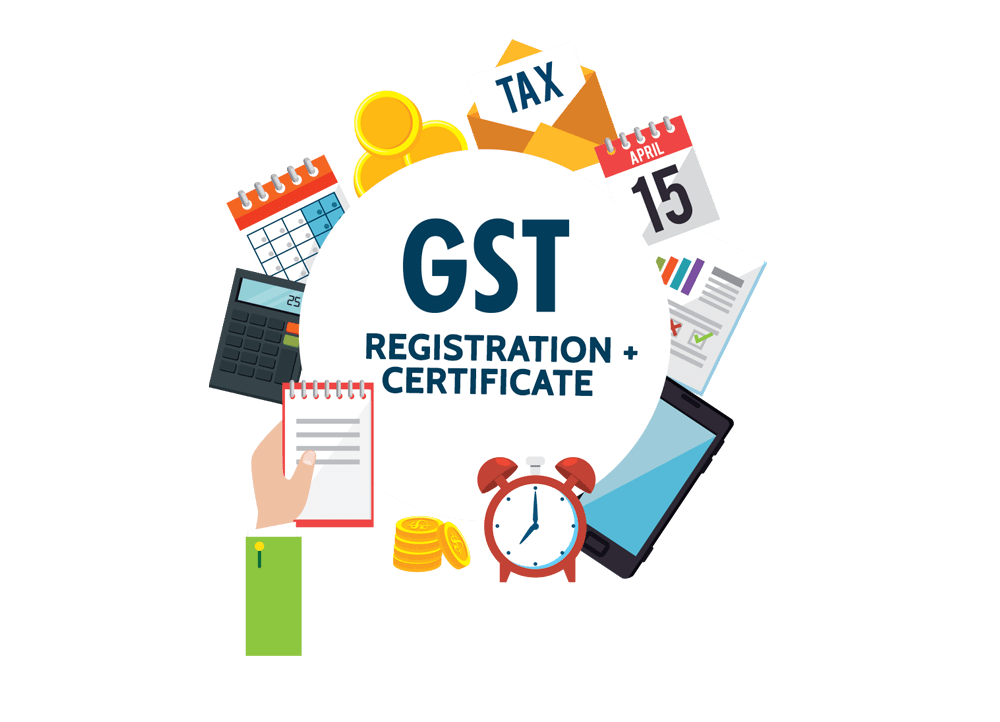Step-by-Step Process for Singapore GST Registration Explained
Making Best Use Of Tax Effectiveness: Professional Tips on Navigating the GST Enrollment Labyrinth for Local Business
Navigating the intricate landscape of Item and Services Tax (GST) enrollment can be a labyrinthine job for small organizations intending to optimize their tax obligation performance. In this conversation, we will explore professional understandings and workable advice that can empower tiny companies to navigate the GST registration maze effectively and maximize their tax efficiency.
Eligibility Standards
Qualification needs for Small Business GST Enrollment include details criteria that businesses should meet to comply with tax policies. To qualify for GST registration, a service needs to have a yearly turnover exceeding the limit established by the tax obligation authorities, which varies by country.

Paperwork Requirements
To efficiently finish the procedure of GST registration, small companies need to guarantee they have all essential paperwork in order. The required documents commonly consists of proof of business enrollment or consolidation, identity and address evidence of business proprietor, photographs, checking account information, and proof of the major workplace. Additionally, companies need to offer information of their company tasks, including the products or solutions provided. It is essential to make certain that all files are precise, approximately date, and in the defined layout to avoid hold-ups or denials during the registration procedure.
In addition to the necessary records, organizations might additionally be required to send extra info based on their certain scenarios. This can include documents related to partnerships, the authorization of signatories, or any other relevant agreements. Maintaining all essential documents organized and easily easily accessible can enhance the registration process and help services abide with the demands successfully - Singapore GST Registration. Failing to supply the needed documentation may result in delays or perhaps rejection of the GST registration application. For that reason, precise attention to information and adherence to the paperwork standards are vital for an effective GST enrollment process for small companies.
Timing Factors To Consider
Taking into consideration the vital documentation demands have actually been carefully attended to, the following important aspect for local business beginning on the GST registration procedure is the strategic administration of timing factors to consider. Timing plays a pivotal function in GST registration, influencing not only compliance yet also monetary aspects of business. Local business require to carefully plan the timing of their GST registration to take full advantage of advantages and minimize potential dangers.

Additionally, companies ought to line up the timing of their GST enrollment with their operational readiness. Sufficient preparation, such as upgrading audit systems and training staff, is necessary to effortlessly integrate GST demands into daily procedures. By strategically managing timing factors to consider, tiny services can navigate the GST registration procedure efficiently and enhance their tax efficiency.
Registration Refine Tips
Efficiently browsing the GST registration procedure calls for little services to execute tactical and aggressive registration process try this ideas. This consists of company registration records, proof of address, bank declarations, and identification evidence of the business owners.
Furthermore, recognizing the limits and needs for GST registration based upon the details state or territory where the service runs is vital. Some states have various turn over limits that set off obligatory registration, so being notified about these thresholds can help organizations prepare ahead.
One more important suggestion is to take into consideration looking for expert help from accountants or tax specialists that concentrate on GST enrollment. Their proficiency can streamline the process, reduce errors, and make certain conformity with all policies.
Compliance Ideal Practices
Little businesses need to prioritize compliance to stay clear of penalties and maintain a good standing with tax authorities. Little business owners should frequently assess government standards and seek specialist guidance if needed to ensure they are fulfilling all needs. By integrating these compliance ideal practices right into their procedures, small services can navigate the complexities of GST registration with self-confidence and effectiveness.
Verdict
Finally, local business can navigate the GST enrollment puzzle by guaranteeing they satisfy qualification requirements, collect needed documents, take into consideration timing ramifications, comply with registration procedure pointers, and stick to conformity ideal techniques. By optimizing tax efficiency with proper GST registration, companies can enhance their financial monitoring and operations.
Browsing the elaborate landscape of Product and Provider Tax (GST) registration can be a labyrinthine task for small organizations intending to optimize their tax obligation performance.Eligibility needs for Small Company GST Enrollment incorporate certain criteria that organizations must meet to abide with tax obligation regulations. The required documents generally consists of evidence of organization registration or address, unification and identification proofs of the company proprietor, photographs, bank account details, and proof of the major location of organization. Additionally, businesses require to give information of their business activities, including the solutions or goods web provided.Efficiently browsing the GST enrollment procedure requires little companies to apply positive and calculated registration procedure ideas.